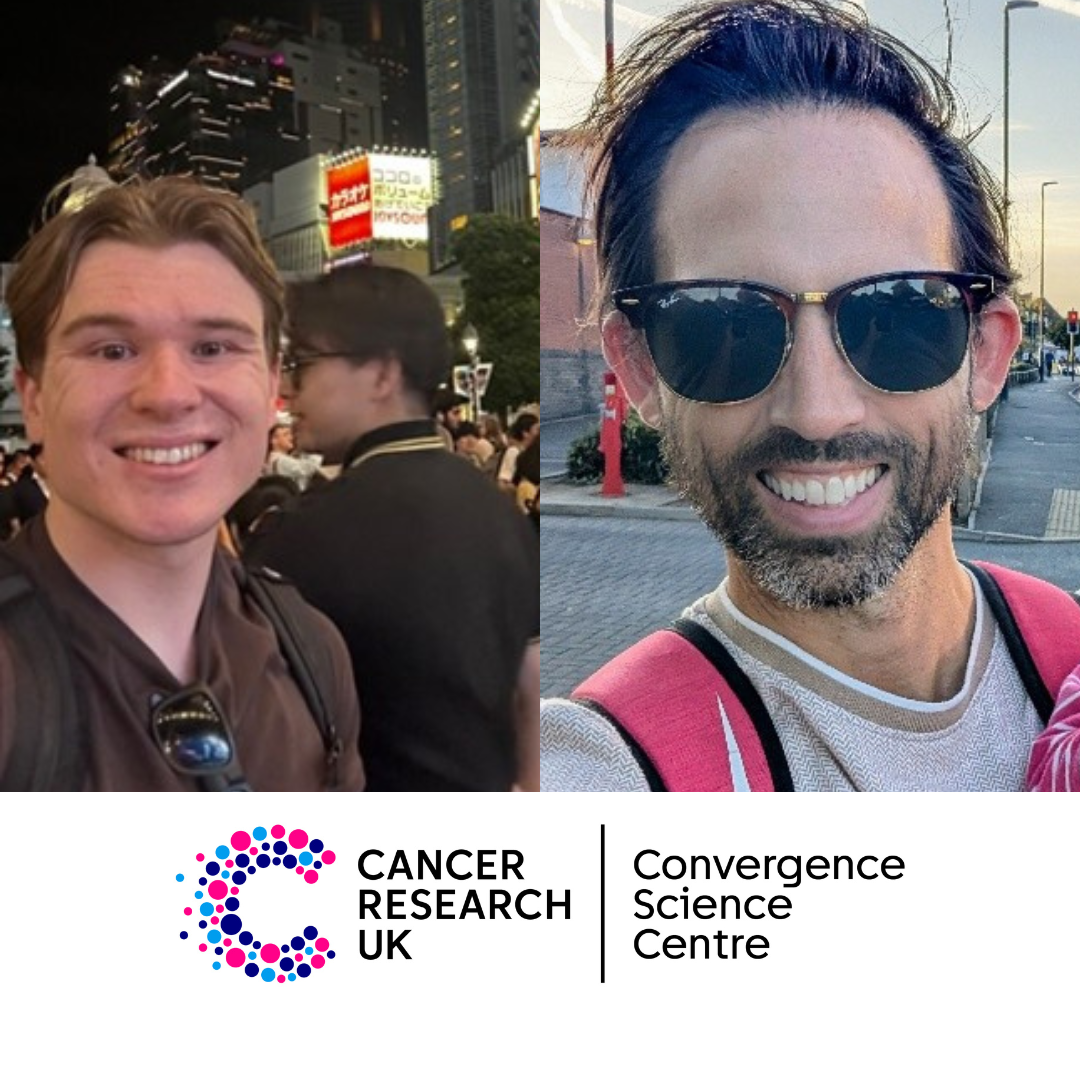

Our future leader seminar gives a platform to our PhD students to present their research, and share their experience of navigating between disciplines and finding their scientific identity as convergence researchers. Members from across Imperial and the ICR are invited to join us online on Wednesday 12th November, 3-4pm.
This seminar will be hosted by Professor Udai Banerji, Co-Director of the Drug Development Unit, ICR, and there will be talks from:
Josh Killilea, iPhD
Electroactive drug delivery for local glioblastoma treatment
Glioblastoma is the most common and most aggressive brain cancer. Survival statistics are sobering and have not improved in over two decades. Even when the patients receive maximal treatment (surgery + chemoradiation), the median survival is only 17 months. For patients, up to a third, who receive anything less than this maximal therapy, median survival varies from 2-9 months. The blood-brain barrier (BBB) is a major reason as to why glioblastoma is extremely challenging to treat as it greatly limits the quantities of systemically administered drugs reaching the tumour site. This results in reduced treatment efficacy while increasing burdensome off-target effects. Locally delivering chemotherapeutics to the tumour site represents a fruitful avenue. Previously investigated options have relied on high-pressure differentials, burdensome surgeries and introduce friction into existing clinical workflows. To this end, a novel treatment device has been co-developed with neurosurgeons and is designed to be compatible with existing neurosurgical workflows. The device can be loaded with chemotherapeutic drugs and their release controlled via the application of external electric fields. An efficacious amount of chemotherapy can be released in short periods (< 1 h). Control over chemotherapeutic release with electric fields has been demonstrated with liquid chromatography mass spectrometry techniques and also been showcased in brain tissue phantoms as well as glioma bearing mice. Further, efficacy of drug release has been shown in 2D and 3D patient derived in vitro models. Future work will focus on performing a pilot safety and efficacy study in SB28 glioma bearing mice.
A bit about me: I am an intercalating PhD student in bioengineering. I also completed an iBSc in Neuroscience and really excited about neurotech applications, particularly in the context of cancer research, with cancer neuroscience being a topic that excited me greatly. In my spare time I enjoy exploring new cafes and playing football or going to the gym.
Nick Waldron, CRF PhD
Decoding the RAF-MEK-ERK-RSK Pathway in Prostate Cancer: From Molecular Mechanisms to Clinical Opportunities
Metastatic castration resistant prostate cancer (mCRPC) is a lethal disease lacking in molecularly targeted therapies. Many patients have activation of the RAF-MEK-ERK signalling pathway, through diverse mechanisms. However, the biomarkers defining activation remain undefined and efforts at targeting the pathway clinically have been limited. Here, we characterize pathway activation in a cohort of clinically annotated patient samples, as well as in vitro models of lethal prostate cancer. We demonstrate that only activated models respond to pharmacological inhibition of the pathway through cytostatic mechanisms and explore synergistic combinations to convert this to a cytotoxic response.
A bit about me: My name is Nick Waldron, and I’m currently in my second year of a three-year clinical PhD. I’m in the middle of my medical oncology specialist registrar training at the Royal Marsden, but have been looking after men with prostate cancer in various medical roles around the world since 2017. Outside of work, I’m father to a fairly naughty two year old daughter Aurelia, and so obviously my hobbies now include going to soft play, playing on the swings, and watching Peppa Pig.
📅Wednesday 12th November, 3-4pm
🔗Please email icr-imperial-convergence.centre@imperial.ac.uk to receive joining details.